Imagine you are hosting an event and a deaf individual approaches you, inquiring about deaf/ hard of hearing accommodations. This happens every day, in a variety of venues, in both the public and private sector. What do you do? How do you communicate? Had you even considered this situation?
One of the biggest barriers between Deaf and hearing cultures is the simple act of hiring a sign language interpreter. Many hearing individuals, as discussed in my previous post, have very little interaction with deaf/ HoH people in their daily lives. When they do encounter someone who requires accommodation, it can feel like a challenge to locate the proper resources. Even more challenging, but equally important, is ensuring you find a high-caliber ASL interpreter for the event.
 The first step in hiring a sign language interpreter is seeking out a local agency which specializes in ASL. I strongly advise looking for a Deaf-owned, or interpreter-owned provider. Here in NYC, there are some large agencies which hire out interpreters for a variety of languages. Sadly, these businesses often add ASL to their roster to make more money; with little regard for Deaf culture, or the quality of interpreter they provide. A Deaf-owned or interpreter-owned agency will have the best resources to ensure all your deaf/HoH patrons receive the same experience as your hearing patrons. Equality is the ultimate goal!
The first step in hiring a sign language interpreter is seeking out a local agency which specializes in ASL. I strongly advise looking for a Deaf-owned, or interpreter-owned provider. Here in NYC, there are some large agencies which hire out interpreters for a variety of languages. Sadly, these businesses often add ASL to their roster to make more money; with little regard for Deaf culture, or the quality of interpreter they provide. A Deaf-owned or interpreter-owned agency will have the best resources to ensure all your deaf/HoH patrons receive the same experience as your hearing patrons. Equality is the ultimate goal!
When you call the agency, be as specific as possible regarding your interpreting needs. Letting the agency know exactly which type of situation they will be accommodating helps to better match you with a qualified interpreter. For example, in a hospital setting, it would be advantageous to hire an interpreter who could not only communicate with both doctors and patients, but one who is also emotionally and mentally prepared to deliver medical news to a patient’s family. If you are able to provide the agency with as much information as possible prior to your event, they can find an interpreter with some background in the field, and allow them to brush up on relevant terminology. A provider who is knowledgeable requires much less preparation, and is capable of providing a much richer interaction.
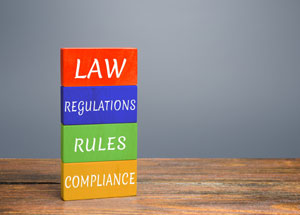 A professional interpreter will know exactly what to do when they arrive on the job. They will ask appropriate questions regarding standing and seating arrangements, and will request any pertinent info prior to the start of your event. It is a great idea to have an outline ready for your ASL interpreter, which would have key topics, any industry-specific jargon, and a list of important names, places, or figures.
A professional interpreter will know exactly what to do when they arrive on the job. They will ask appropriate questions regarding standing and seating arrangements, and will request any pertinent info prior to the start of your event. It is a great idea to have an outline ready for your ASL interpreter, which would have key topics, any industry-specific jargon, and a list of important names, places, or figures.
The Federal Government provides financial assistance for businesses to provide deaf/ hard of hearing accommodation.
The Americans with Disabilities Act (ADA) requires that equal access be provided to persons with disabilities by all public entities (government offices, public schools, etc.) and by all services which are provided to the public at large (doctor’s offices, lawyers, etc.). Generally, this means that such entities are required to pay for sign language interpreting services. To assist businesses with complying with the ADA, Section 44 of the IRS Code allows a tax credit for small businesses and Section 190 of the IRS Code allows a tax deduction for all businesses. This credit can cover 50% of the eligible access expenditures in a year (up to $10,250).
 While provisions may be required by law, it is up to you whether your Deaf/ hard of hearing patron will receive the same quality of service you offer your hearing patrons. It is prudent to find an interpreter with more than just the national certification. Strong background knowledge, diverse field experience, and cultural competence will go a long way in providing equal accommodations, and curbing the oppression of deaf/HoH individuals.
While provisions may be required by law, it is up to you whether your Deaf/ hard of hearing patron will receive the same quality of service you offer your hearing patrons. It is prudent to find an interpreter with more than just the national certification. Strong background knowledge, diverse field experience, and cultural competence will go a long way in providing equal accommodations, and curbing the oppression of deaf/HoH individuals.
Currently, in the greater New York City area, there is one Deaf-owned and four interpreter-owned providers, including myself. For more information about my interpreting services, please contact me.
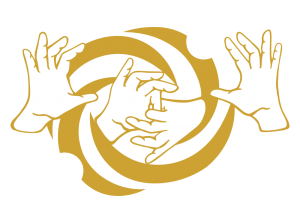



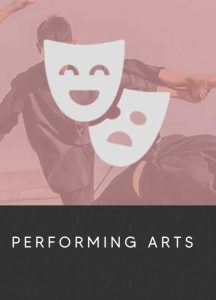

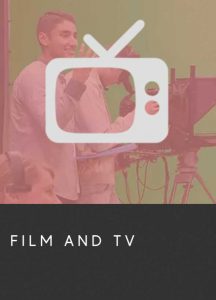

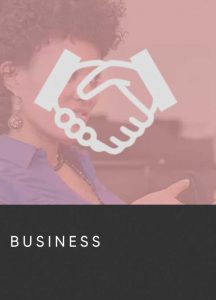
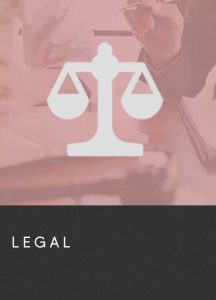


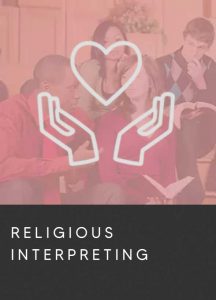
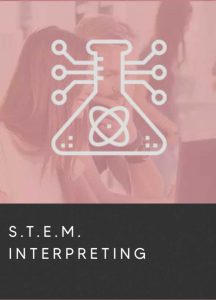
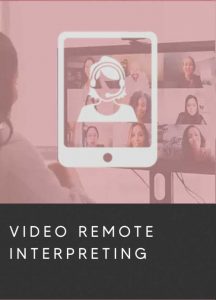
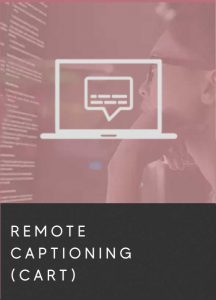

 The first step in hiring a sign language interpreter is seeking out a local agency which specializes in ASL. I strongly advise looking for a Deaf-owned, or interpreter-owned provider. Here in NYC, there are some large agencies which hire out interpreters for a variety of languages. Sadly, these businesses often add ASL to their roster to make more money; with little regard for Deaf culture, or the quality of interpreter they provide. A Deaf-owned or interpreter-owned agency will have the best resources to ensure all your deaf/HoH patrons receive the same experience as your hearing patrons. Equality is the ultimate goal!
The first step in hiring a sign language interpreter is seeking out a local agency which specializes in ASL. I strongly advise looking for a Deaf-owned, or interpreter-owned provider. Here in NYC, there are some large agencies which hire out interpreters for a variety of languages. Sadly, these businesses often add ASL to their roster to make more money; with little regard for Deaf culture, or the quality of interpreter they provide. A Deaf-owned or interpreter-owned agency will have the best resources to ensure all your deaf/HoH patrons receive the same experience as your hearing patrons. Equality is the ultimate goal! A professional interpreter will know exactly what to do when they arrive on the job. They will ask appropriate questions regarding standing and seating arrangements, and will request any pertinent info prior to the start of your event. It is a great idea to have an outline ready for your ASL interpreter, which would have key topics, any industry-specific jargon, and a list of important names, places, or figures.
A professional interpreter will know exactly what to do when they arrive on the job. They will ask appropriate questions regarding standing and seating arrangements, and will request any pertinent info prior to the start of your event. It is a great idea to have an outline ready for your ASL interpreter, which would have key topics, any industry-specific jargon, and a list of important names, places, or figures. While provisions may be required by law, it is up to you whether your Deaf/ hard of hearing patron will receive the same quality of service you offer your hearing patrons. It is prudent to find an interpreter with more than just the national certification. Strong background knowledge, diverse field experience, and cultural competence will go a long way in providing equal accommodations, and curbing the oppression of deaf/HoH individuals.
While provisions may be required by law, it is up to you whether your Deaf/ hard of hearing patron will receive the same quality of service you offer your hearing patrons. It is prudent to find an interpreter with more than just the national certification. Strong background knowledge, diverse field experience, and cultural competence will go a long way in providing equal accommodations, and curbing the oppression of deaf/HoH individuals.
 Providing your deaf or hard of hearing family members with a professional interpreter is an extra consideration that goes a long way. It breaks my heart to hear about people feeling left out of their own families because of a difference in language. In the modern age, a time when we are so caught up in the many means of socializing, it’s tragic that the most intimate gatherings cannot be thoroughly enjoyed by all.
Providing your deaf or hard of hearing family members with a professional interpreter is an extra consideration that goes a long way. It breaks my heart to hear about people feeling left out of their own families because of a difference in language. In the modern age, a time when we are so caught up in the many means of socializing, it’s tragic that the most intimate gatherings cannot be thoroughly enjoyed by all. Beyond hiring an interpreter for family events, actually learning ASL is the gift that keeps on giving. Imagine the joy on your deaf family members’ face when you begin signing to them! Surely, it will be a treat for everyone if you step out of your comfort zone to break through the silence, and your deaf family member will certainly not be judging you for trying. In fact, you’d be surprised how bonding this experience can be!
Beyond hiring an interpreter for family events, actually learning ASL is the gift that keeps on giving. Imagine the joy on your deaf family members’ face when you begin signing to them! Surely, it will be a treat for everyone if you step out of your comfort zone to break through the silence, and your deaf family member will certainly not be judging you for trying. In fact, you’d be surprised how bonding this experience can be!
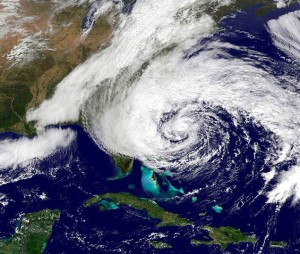 during a time of crisis was one of the highest honors I have ever achieved. Prior to Hurricane Sandy, I had worked a number of jobs underneath the mayor’s office, but had never worked with Mr. Bloomberg directly. When disaster hit, the agency I work for selected me to be on Bloomberg’s team of interpreters because they recognized my professional capabilities. I take a lot of pride in that. I was chosen to be a voice, reaching out to both the hearing and hard of hearing community, saying “we are all in this together.” It was stressful, yes, but the positive response has been really encouraging.
during a time of crisis was one of the highest honors I have ever achieved. Prior to Hurricane Sandy, I had worked a number of jobs underneath the mayor’s office, but had never worked with Mr. Bloomberg directly. When disaster hit, the agency I work for selected me to be on Bloomberg’s team of interpreters because they recognized my professional capabilities. I take a lot of pride in that. I was chosen to be a voice, reaching out to both the hearing and hard of hearing community, saying “we are all in this together.” It was stressful, yes, but the positive response has been really encouraging.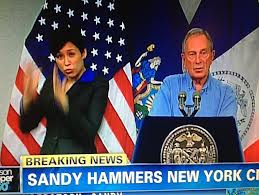 ongoing natural disaster fully prepared. Like most interpreting jobs, there was no script or briefing. I did my research on the train, en-route to City Hall, keeping myself up-to-date on what exactly was occurring. Since I knew my audience was going to be very broad, I decided to employ methods which felt the most inclusive to the full spectrum of the deaf and hard of hearing community; which meant, in addition to signing American Sign Language (ASL), I would mouth the words very clearly. This seems to have sparked a lot of discussion about my signing style!
ongoing natural disaster fully prepared. Like most interpreting jobs, there was no script or briefing. I did my research on the train, en-route to City Hall, keeping myself up-to-date on what exactly was occurring. Since I knew my audience was going to be very broad, I decided to employ methods which felt the most inclusive to the full spectrum of the deaf and hard of hearing community; which meant, in addition to signing American Sign Language (ASL), I would mouth the words very clearly. This seems to have sparked a lot of discussion about my signing style!
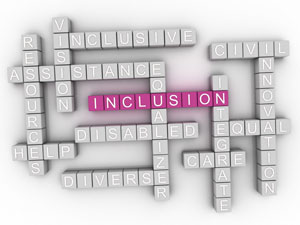 In the wake of that experience, it is my hope to use all the attention for good. In our 2012 pop-culture society, media is an integral part of our day-to-day lives. I strongly feel that the universe put me in the media spotlight, not for fame, but to educate my fellow Americans about the 48 million deaf and hard of hearing citizens living in this country, and break down the communication barrier between us all. I feel very passionately about bridging the communication gap that has existed for far too long, and I am blessed with the opportunity to be a liaison between two wonderful cultures.
In the wake of that experience, it is my hope to use all the attention for good. In our 2012 pop-culture society, media is an integral part of our day-to-day lives. I strongly feel that the universe put me in the media spotlight, not for fame, but to educate my fellow Americans about the 48 million deaf and hard of hearing citizens living in this country, and break down the communication barrier between us all. I feel very passionately about bridging the communication gap that has existed for far too long, and I am blessed with the opportunity to be a liaison between two wonderful cultures.





